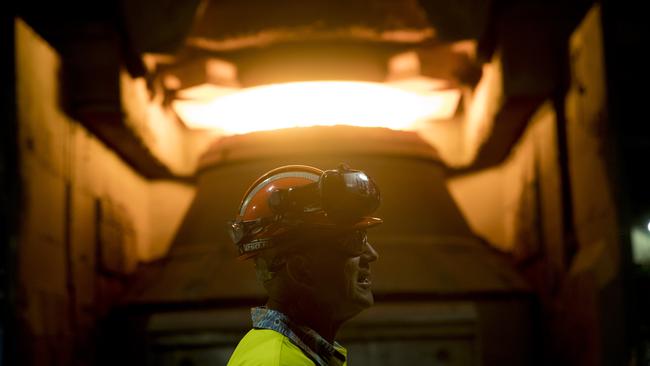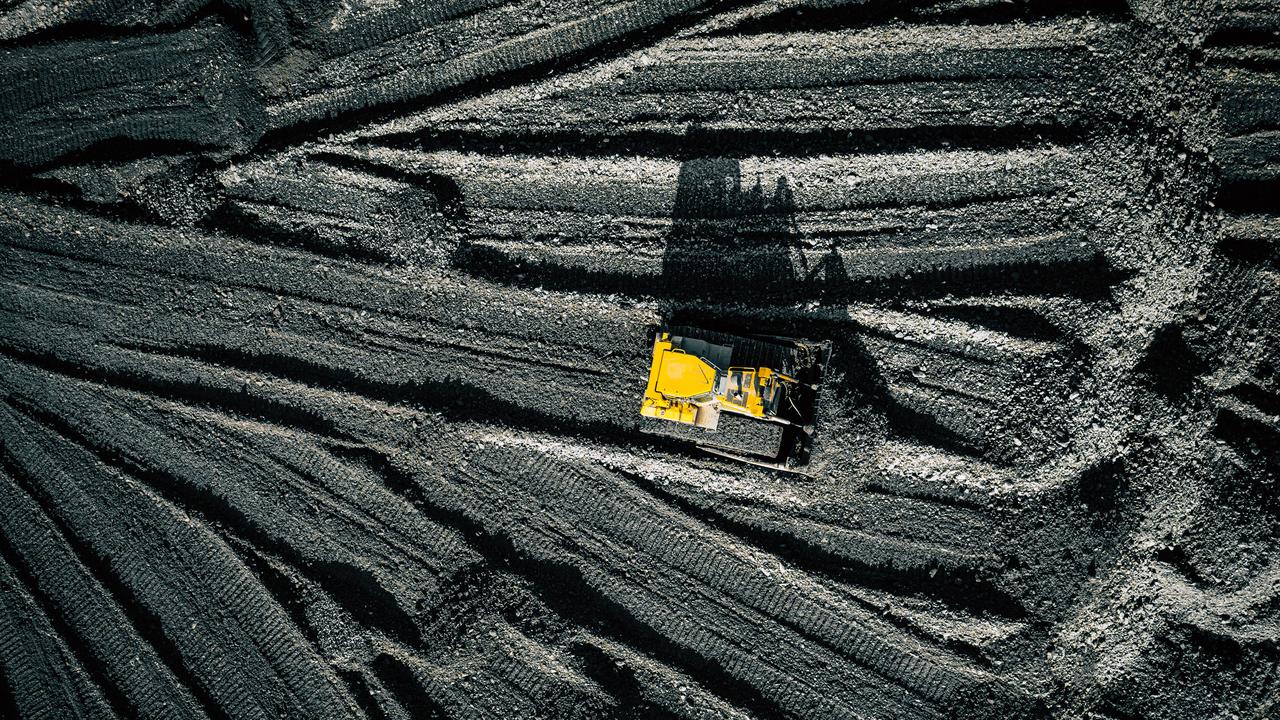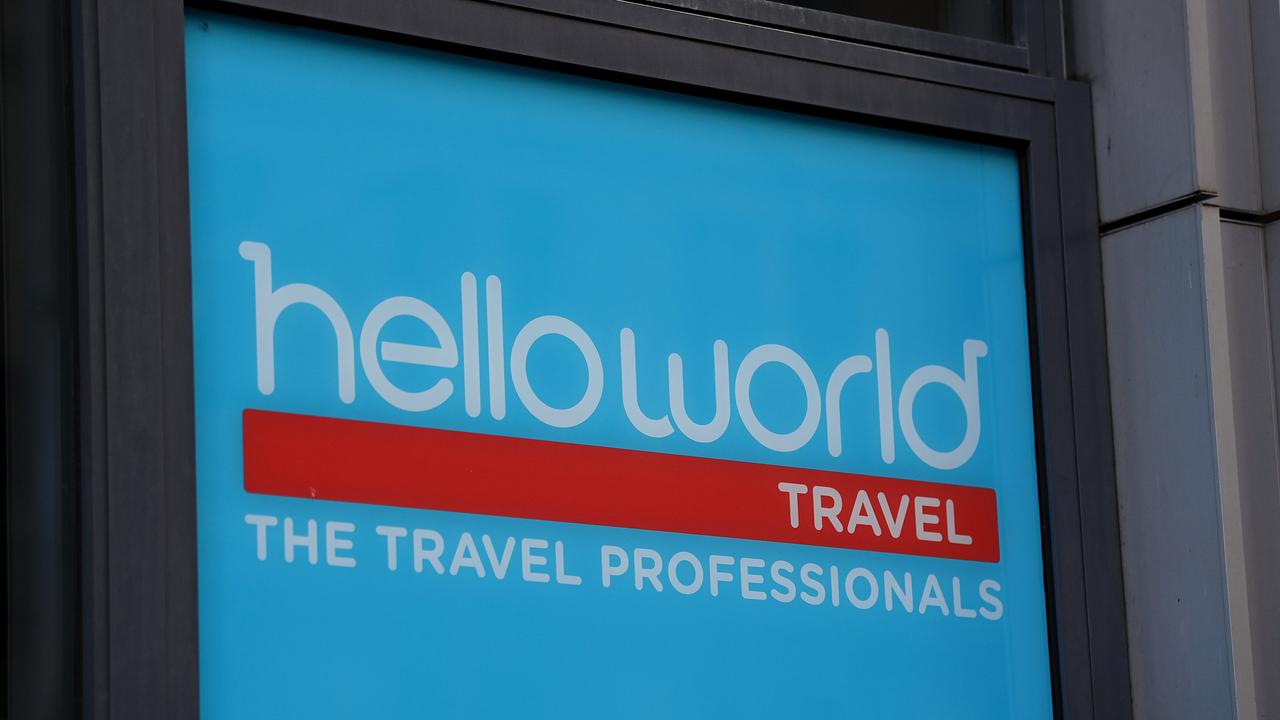
There’s a growing view from some in the market that Sanjeev Gupta’s InfraBuild steel business will ultimately end up in the hands of BlueScope or the Stokes family-backed SGH, with government intervention a possibility.
BlueScope has been in talks with the government about managing the Whyalla steelworks that were placed into administration by the South Australian government. Whyalla owed money to customers under the ownership of Mr Gupta’s GFG Alliance, including the government.
It is largely the only major producer of the long steel products in Australia that are critical for construction, and most big builders and developers carrying out projects here import it from international markets such as Asia.
About 70 per cent of Whyalla’s steel is sold to InfraBuild, and the risk for the government is that should the business be sold to a private equity firm or controlled by bondholders, the new owner may opt to purchase long steel products from other international providers at a cheaper rate, rather than from Whyalla.
This is as the government commits $2.4bn of investment to the long-term future of Whyalla and its steelworks through subsidies, support and funding through the government’s Green Iron Investment Fund.
Another risk is that a private equity owner or bondholders shut down InfraBuild’s steel manufacturing and it just becomes a steel distributor, which is the more profitable part of the business.
InfraBuild agreed a $US150m debt restructuring deal with its bondholders this year and offered board representation.
Bondholder FitzWalter Capital Partners, backed by former Macquarie executive Ben Brazil, had been demanding an immediate $800m repayment from GFG Alliance.
The government may have little control of the direction of the business should it fall into the hands of private equity without intervention, and its dilemma is whether it acts fast before Mr Gupta’s GFG Alliance sells the asset.
One option may be that if the government is an InfraBuild creditor that is still owed money, it could place the business into administration.
Another is that the government could nationalise it, or force a sale and direct the outcome to an Australian buyer like the listed SGH Group that is run by Ryan Stokes and owns the country’s largest building materials provider Boral, or national steel making champion BlueScope.
BlueScope could then use a deal where it runs the loss-making Whyalla steelworks as leverage for forcing the government to sell it the business.
Or the government could pass a new law stating that any buyer of InfraBuild would need to buy steel from Whyalla, or put tariffs in place that are highly prohibitive for importing products.
BlueScope is partial to producing flat steel products, and while it may be winding back to products where it can add value, by owning InfraBuild, it would mean it would have consolidated the market, creating more opportunities for profitability.
While other arc furnaces are being build around the country, they are not seen as enough to provide enough products from a national security perspective.
DataRoom had earlier reported that Apollo Global Management had been among the private equity firms circling InfraBuild.
According to a US offer memorandum for the 12 months to March last year, InfraBuild generated $411m in earnings before interest, tax, depreciation and amortisation, but it is believed to have fallen since then.
Its debt was about $1.5bn, including leases and loans from related parties.
Latest documents show InfraBuild posted an $81m half-year loss.
In early March a meeting of the creditors of OneSteel Manufacturing, which owns the Whyalla steelworks and associated iron ore mines, heard that the company owed $1.3bn to creditors, including more than $500m being claimed by InfraBuild.
InfraBuild’s steel distribution business is Australia’s largest processor and distributor of long-steel products and produces 1.4 million tonnes of recycled steel across the country.
The Australian earlier reported Fitch warned that InfraBuild was at risk of breaching the covenants around the $US150m asset-backed term loan (ABTL) within the next six months unless earnings recovered.
Breaching those covenants could in turn lead to “payment acceleration and a liquidity crunch’’.
Fitch said that based on unaudited financial statements, InfraBuild’s EBITDA fell 43 per cent in the first half of the 2025 financial year.
Earnings would come under further pressure as US steel tariffs potentially diverted steel imports into Australia, the firm said.




To join the conversation, please log in. Don't have an account? Register
Join the conversation, you are commenting as Logout